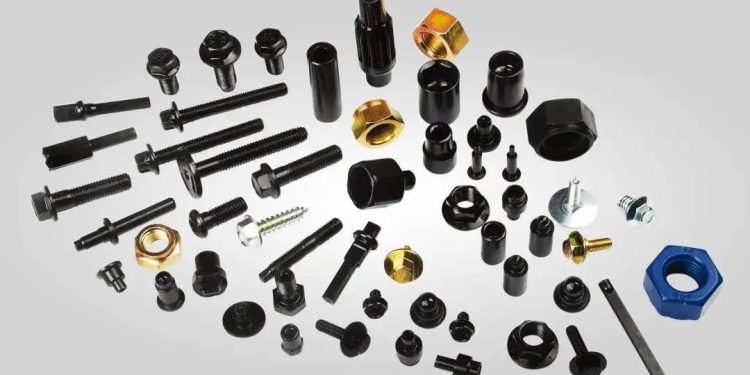Introduction
When it comes to cars, the last thing one would opt for would probably be fasteners. But these small pieces of metal will determine the difference in safety and durability in your ride efficiently.
Be it bolts between the engine down to the nuts holding your wheels together, selecting just the right type of fastener is important to get the best performance and safety. The purpose of automotive fasteners and choosing the best for your car is discussed in detail in the following article.
1. Safety Guaranteed with the Use of Correct Fasteners
From just a simple function of holding pieces together to bearing the extreme stress under which a vehicle can be subjected to daily use, automotive fasteners play a multi-functional role.
From the engine down to the chassis to the smallest of electronic parts, each component in your car depends on the right fastener to serve its function and purpose. Choosing the right type of fastener is not compromising on safety.
Fasteners not matching up to the requirements of the load or stress within the environment can lead to catastrophic failures, thus putting in danger not only the vehicle itself but also the occupants.
2. Understanding Different Types of Fasteners
Not all the fasteners are created equal, and there are many different types of fasteners that vehicles need for different purposes. Bolts, screws, nuts, and washers-all of these have different properties and uses.
For example, lug nuts are designed to hold wheels firmly in place, whereas engine parts might be held with bolts. The selection of the right type does not merely pertain to fitting but also to matching its properties with demands placed by its function. Material, size, threading, and coating all are factors in the suitability of a fastener.
Besides mechanical considerations in choosing fasteners, environmental ones must also be taken into account, such as whether or not the fasteners are exposed to moisture or corrosive elements.
3. The Role of Fasteners on Performance of the Vehicle
Fasteners add to the performance of your car by holding parts in place and working together harmoniously through changing conditions. The wrong or badly fitted fasteners can be a contributor to inefficiency in functionality or malfunctioning in performance.
A loose screw will cause extra vibrations, which may scale up car part wear and tear, while an over-tightened fastener risks component damage via material strain or breakage.
4. How to Choose the Right Automotive Fasteners
Automotive fasteners come in a wide range of grades and specifications, all for specific applications. To decide on the best fasteners for your car, among the factors to be considered include locational placement and its function, material properties, and its load-carrying characteristics.
For example, fasteners that are to be used in high heat areas such as around the engine should have resistance to thermal expansion and corrosion.
Your car’s manual or a professional mechanic will help you decide exactly what to do. Replace the worn-out fasteners with quality ones on a timely basis, and that will keep your car performance tuned.
5. Common Issues Arising from Improper Fasteners
A few of the problems that may arise with the incorrect type, size, or specification of fastener in use include fastener loosening due to sustained vibration, corrosion of the fasteners themselves with moist conditions, material stress causing cracks and breaks, and even outright total system failure.
Neglecting such small but important components can thus have enormous implications on the overall vehicle as a result. Regular checks and maintenance remain some of the major strategies that help in early detection and remediation of these issues before they become worse.
6. How to Inspect and Maintain Fasteners
Let’s repeat that the routine inspections are important for maintaining the integrity of your car’s fasteners. First, look for signs of wear such as rust or corrosion, stripped threads, or physical damage.
Check fasteners after doing any repair work beyond simple oil changes to make sure they’ve all been properly re-torqued and secured.
Take advantage of torque wrenches to tighten fasteners according to the manufacturer’s specifications to avoid over- or under-tightening, either of which can compromise safety and function.
7. Why Quality Counts at Automotive Fasteners
It saves time and money in the longer run by investing in quality fasteners. Better-designed fasteners are made to resist normal driving stresses and environmental factors that may weaken their performance.
The cheap fasteners may seem cost-effective at the beginning but mostly lack the enduring qualities and reliability that superior kinds offer; thus, they need to be changed more often and may affect other car parts.
Conclusion
These small but mighty components account for the reasons your vehicle is safe and performs at its best. The importance of fasteners cannot be overly stated, as this aids in choosing the right fastener for your car-meaning, well done indeed, in terms of operating performance.
This paper elucidates types of fasteners and why these should matter in improving one’s vehicle maintenance routine so that driving is not only efficiently handled but also safely and securely.
This regular inspection-with replacement of fasteners where necessary-can prevent costly repairs and maintain performance integrity over the life span of your vehicle.
Also Read: How to Choose the Best Car Dealer for Your Next Vehicle Purchase
















